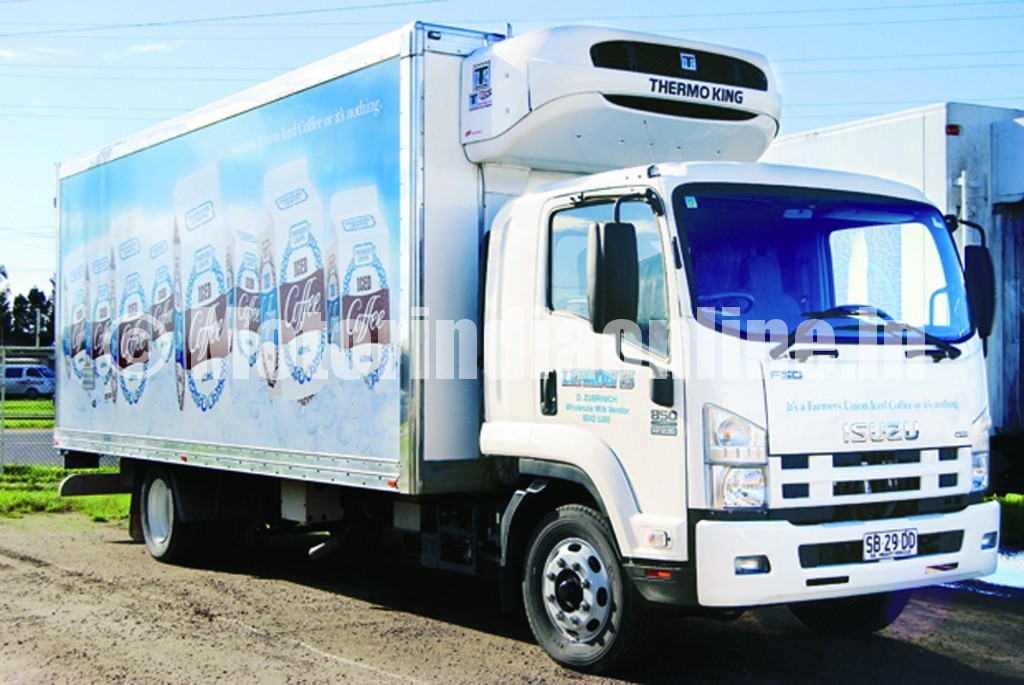Comprehensive Guide to Best Transport Refrigeration Companies
Comprehensive Guide to Best Transport Refrigeration Companies
Blog Article
Just How Chilled Trucks Operate to Ensure Safe and Effective Delivery of Perishable Product
Refrigerated vehicles play a crucial function in the supply chain, making sure that disposable products are transported safely and efficiently. Using innovative refrigeration technologies and durable insulation, these cars maintain precise temperature control, which is vital for protecting the high quality of delicate products. Modern-day advancements in keeping an eye on systems provide real-time understandings into interior conditions, even more ensuring compliance with market criteria. Despite these developments, difficulties remain in optimizing loading practices and navigating complicated logistics. Checking out these details reveals not only the modern technology at job however also the wider ramifications for food safety and security and top quality guarantee.
Review of Refrigerated Trucks
Refrigerated trucks, commonly described as reefer vehicles, play an essential duty in the transport of subject to spoiling goods across various industries. These customized automobiles are developed to preserve particular temperature level varieties, making certain that items such as fresh produce, dairy products, meat, and drugs continue to be secure for intake and effective usage. The operation of chilled vehicles is vital in decreasing putridity and expanding the life span of temperature-sensitive products.
Reefer vehicles are furnished with protected freight locations that are qualified of sustaining reduced temperatures, which can be readjusted according to the kind of products being delivered. The vehicles commonly use a refrigeration system powered either by the car's engine or an independent power source, enabling constant temperature control throughout transit.
In enhancement to temperature level maintenance, these trucks are commonly made with sophisticated tracking systems to track the inner environment, ensuring conformity with health and safety and security guidelines. Moreover, cooled vehicles contribute considerably to the supply chain, enabling prompt deliveries to customers, merchants, and dining establishments. Their crucial duty highlights the value of dependable transportation services in today's global market, where quality is critical.
Trick Refrigeration Technologies
Preserving optimum temperature level control in refrigerated trucks relies upon numerous vital refrigeration innovations that improve effectiveness and integrity. One of the most usual systems is the vapor-compression refrigeration cycle, which uses a cooling agent to take in warm from the vehicle's interior, reducing the temperature. This procedure includes a compressor, condenser, development valve, and evaporator, working in tandem to circulate the refrigerant and maintain a constant climate.
One more notable innovation is the usage of eutectic plates, which keep and release thermal power. These plates are loaded with a phase-change product that solidifies at a details temperature, offering a stable cooling resource. This approach not just enhances power effectiveness however additionally minimizes the demand for constant power supply throughout transit.
In addition, advanced insulation products, such as polyurethane foam, considerably improve the thermal efficiency of chilled vehicles, lessening temperature variations during loading and discharging. Some contemporary chilled vehicles also incorporate telematics systems, permitting real-time monitoring of temperature and performance, therefore making certain compliance with security standards. Together, these innovations make sure the safe transportation of subject to spoiling items while optimizing functional efficiency and decreasing power usage.
Temperature Control Mechanisms
Effective temperature control mechanisms are critical in making certain the stability of disposable goods throughout transportation. Refrigerated vehicles make use of innovative innovations to maintain constant temperature level arrays, stopping spoilage and making certain item safety and security. Central to these devices is the refrigeration system, which operates making use of vapor-compression or absorption refrigeration systems. These units are developed to cool the air within the cargo room efficiently and keep the required temperature level throughout the journey.
Furthermore, modern-day chilled trucks are equipped with digital thermostats and programmable temperature surveillance systems. These systems enable real-time tracking of internal temperatures, providing alerts if the temperature differs the fixed array. This capacity is important for compliance with wellness and security regulations.
Insulation additionally plays a critical duty in temperature level control. High-quality insulation products reduce warmth exchange, maintaining the wanted inner problems. Furthermore, air movement administration within the freight area is engineered to make certain consistent temperature circulation, stopping hotspots that could compromise item stability (transport refrigeration companies).
Ideal Practices for Filling

This method permits the temperature level control system to stabilize, developing a perfect setting for disposable items. Avoid overloading and obstructing vents, as this can lead to temperature level variations and hotspots.
Shelving or using pallets can assist in organizing items, guaranteeing that heavier items are positioned near the bottom to stop squashing lighter products. Additionally, it is essential to set apart different kinds of products, particularly those with varying temperature level needs, to stop cross-contamination and wasting.
Last but not least, securing the lots with bands or webs will certainly protect against activity throughout transportation, thus lowering the threat of damage and keeping the stability of temperature-sensitive items. By adhering to these best techniques, drivers can ensure secure and efficient delivery of subject to spoiling products while taking full advantage of the performance of their cooled trucks.
Obstacles and Solutions in Transport
Transporting goods in refrigerated trucks presents several obstacles that can affect the integrity of temperature-sensitive items. One considerable concern is temperature variations, which can take place as a result of tools breakdown or incorrect packing methods. These fluctuations can result in wasting, compromising the quality of subject to spoiling goods. In addition, roadway conditions and hold-ups can further exacerbate temperature level control problems, particularly throughout expanded transit times.
To resolve these challenges, executing durable tracking systems is crucial. Advanced telemetry can offer real-time temperature level information, notifying motorists to any kind of abnormalities. Routine maintenance of refrigeration devices makes certain optimal performance and decreases the danger of breakdowns. Moreover, training workers on ideal loading and discharging methods can reduce the risk of temperature deviations.
Another trick remedy includes route optimization. Utilizing GPS and web traffic administration modern technologies can help chauffeurs choose one of the most efficient paths, decreasing transit times and decreasing exposure to damaging problems. Working together with reputable logistics companions that focus on cold chain stability is likewise vital for making sure that products remain within needed temperature level varieties.

Verdict
In final thought, cooled vehicles play an essential role in the reliable and risk-free transportation of disposable products. Utilizing innovative refrigeration technologies and efficient temperature control mechanisms guarantees that products continue to be within called for temperature ranges. Abiding by ideal practices in loading and route optimization better enhances distribution efficiency. Attending to difficulties via ingenious solutions is important for maintaining compliance with wellness laws, inevitably securing the stability of delicate products throughout the supply chain.

Report this page